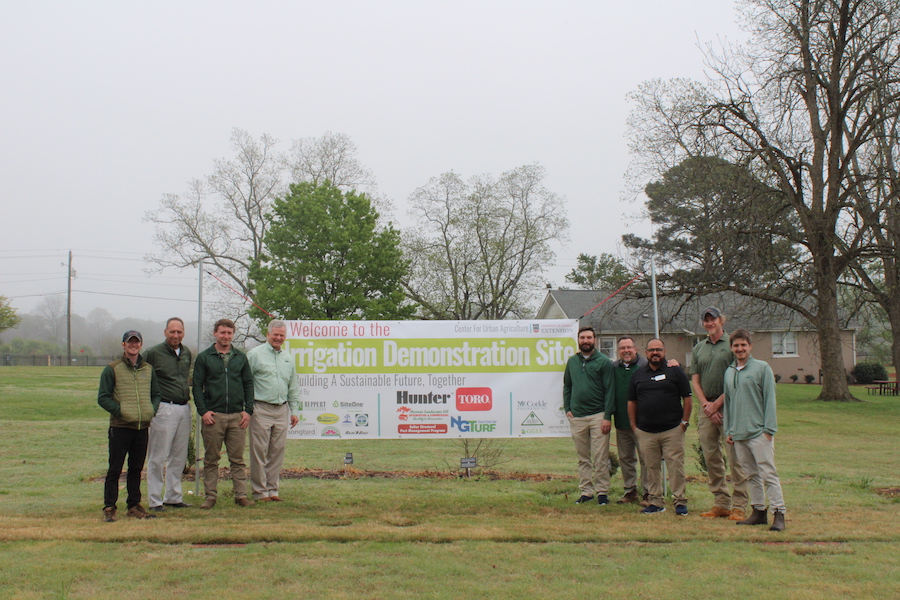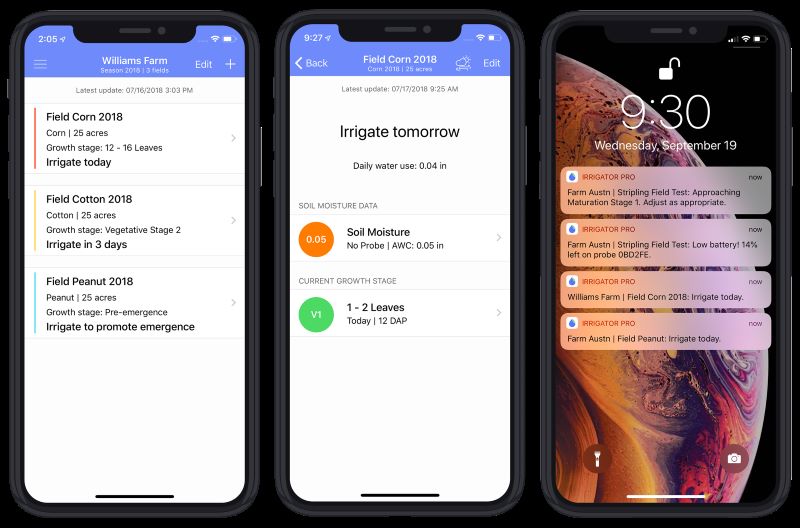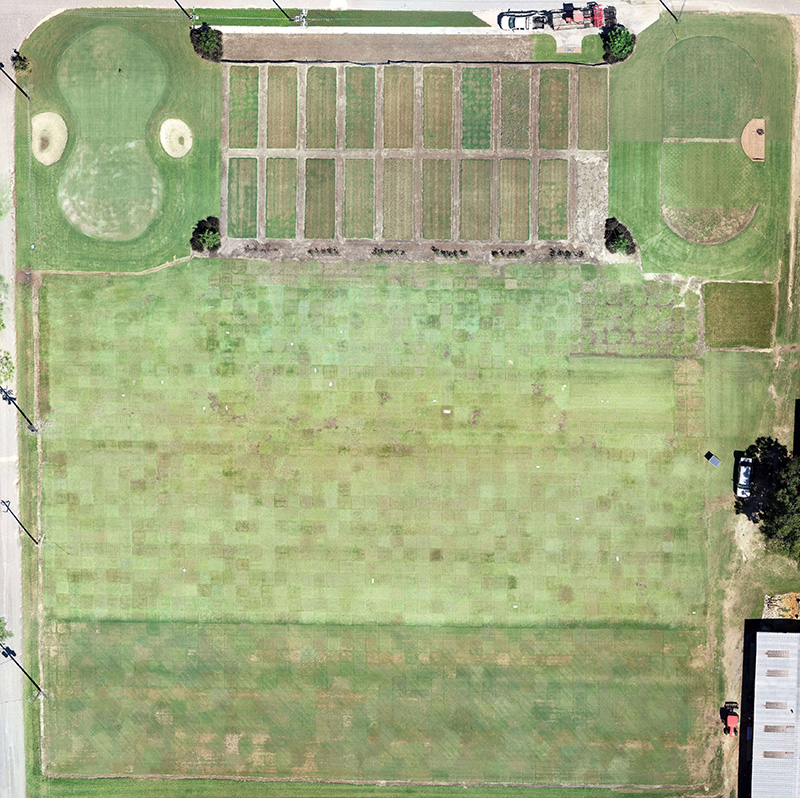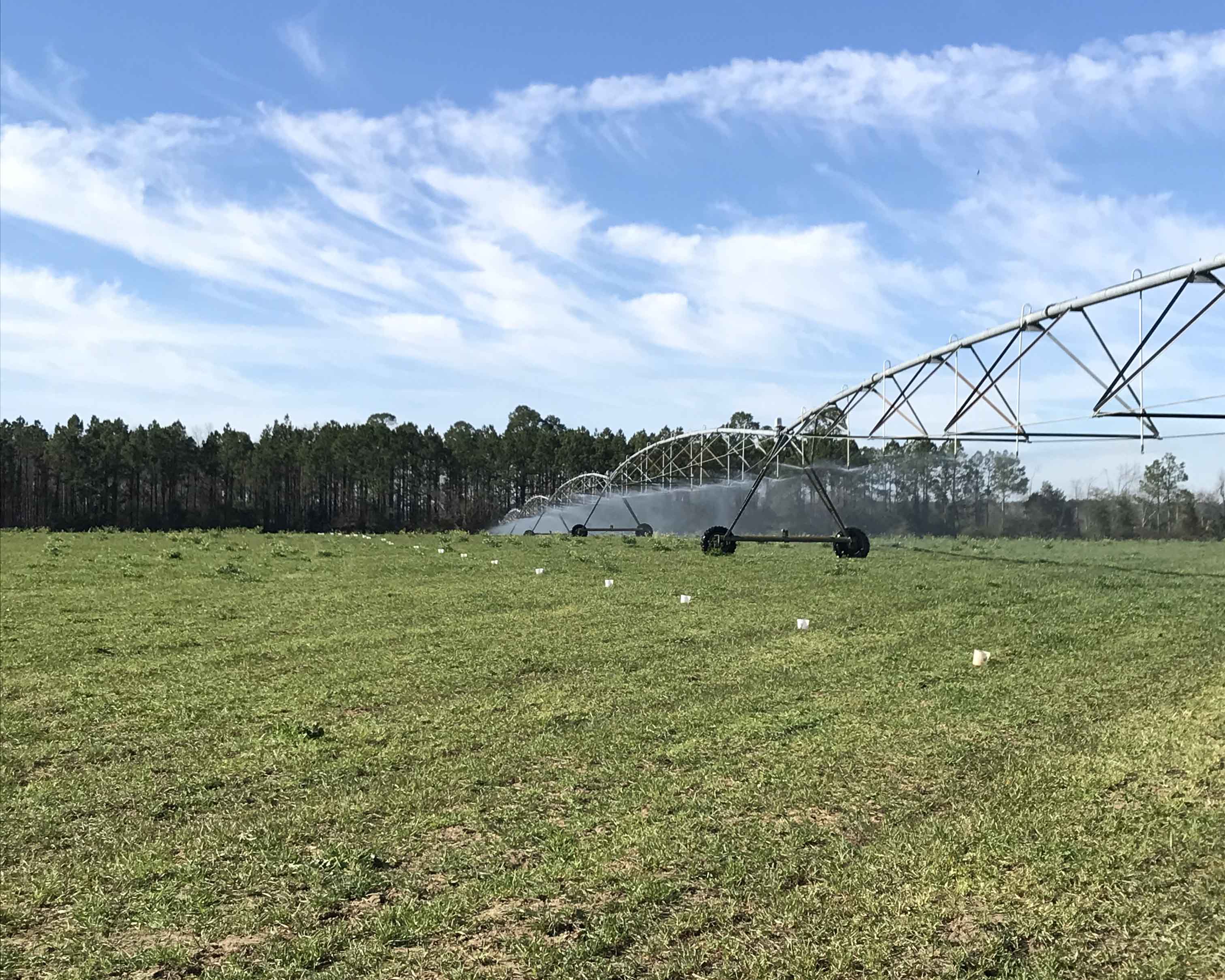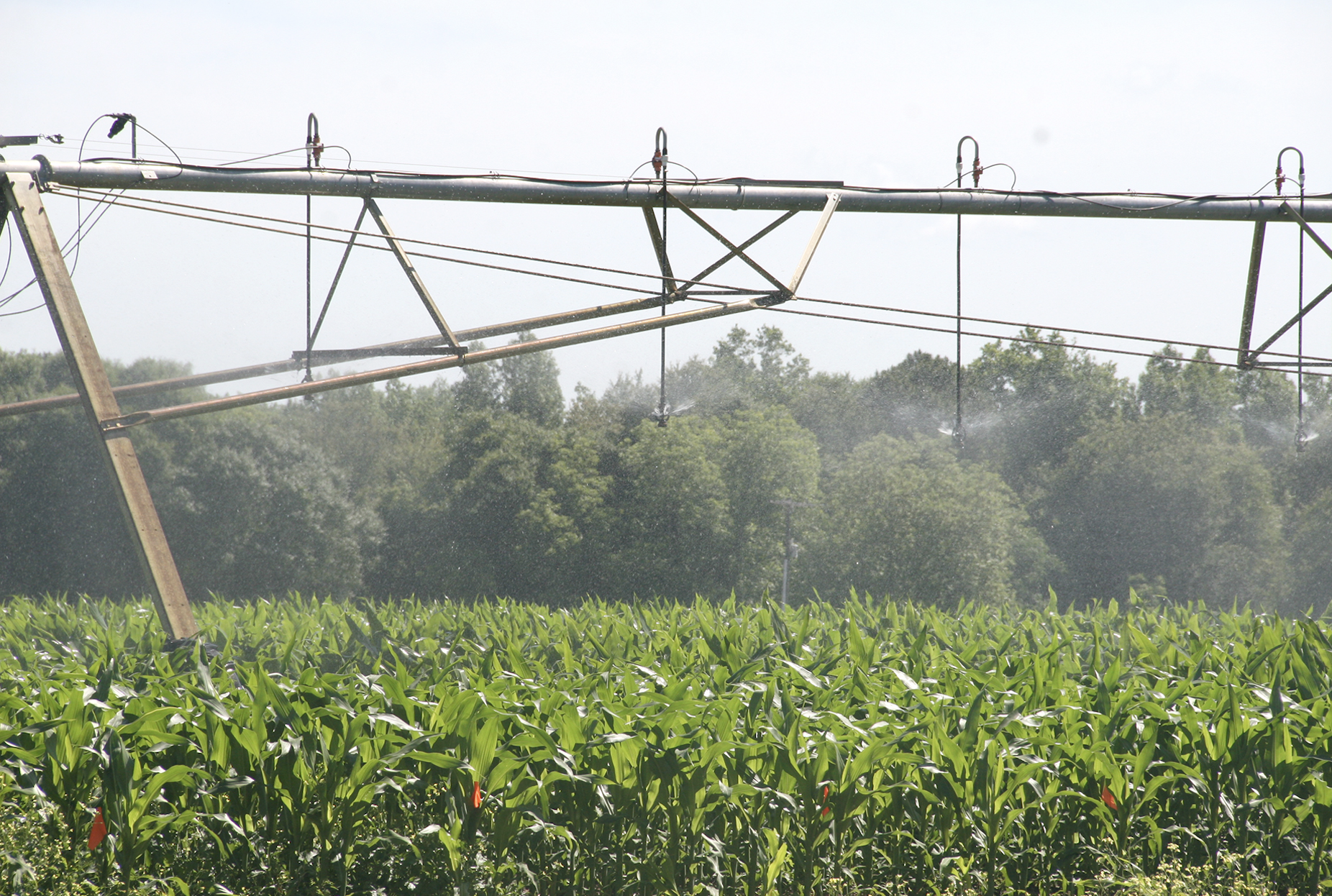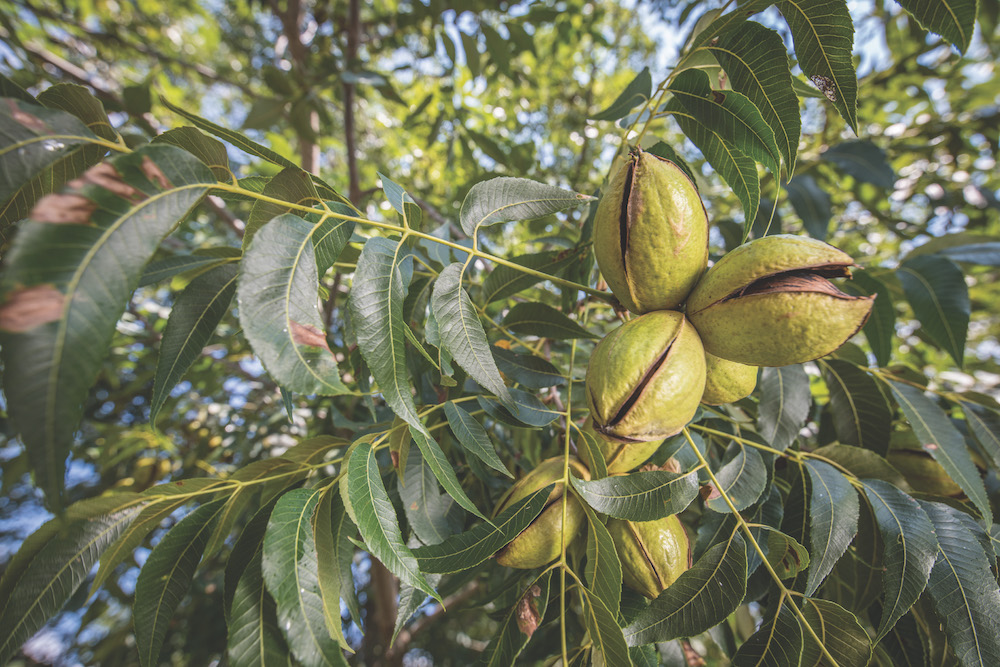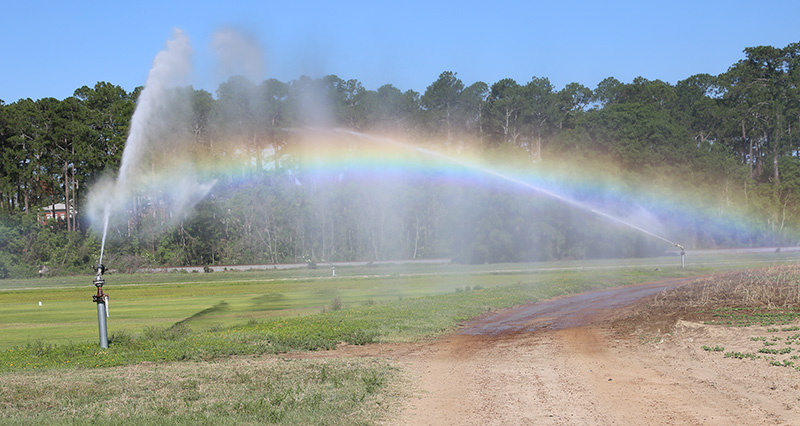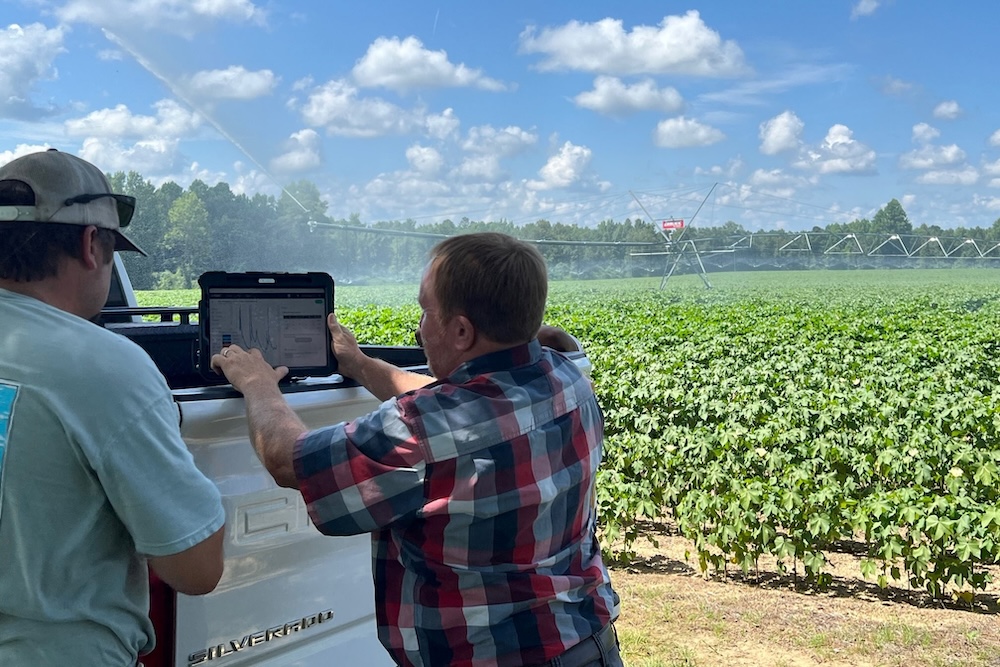 CAES News
CAES News
Master Irrigator Program
Georgia's leading industry is agriculture, which relies significantly on irrigation — approximately half of the state's cropland is irrigated. For most farmers operating on razor-thin profit margins, irrigation is essential as insurance against drought and extended dry periods. In a concerted effort to address water conservation in agriculture, the University of Georgia Cooperative Extension Ag Water Team helps farmers adopt water-saving practices that boost yields, lower production costs and conserve water for future generations.

